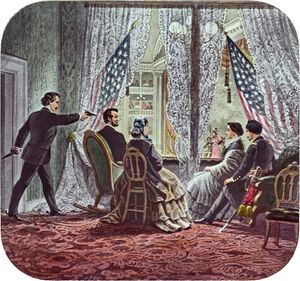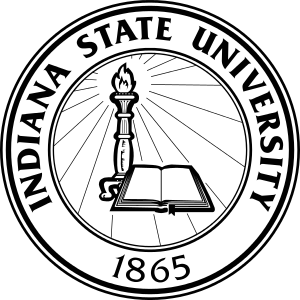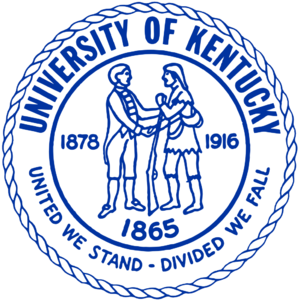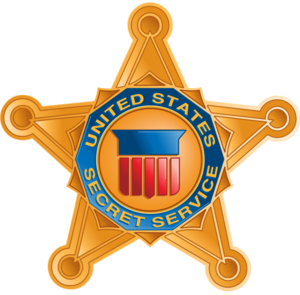1865
Jump to navigation
Jump to search
1855 < 1856 < 1857 < 1858 < 1859 < 1860 < 1861 <1862 < 1863 < 1864 < 1865 > 1866 > 1867 > 1868 > 1869 > 1870 > 1871 > 1872 > 1873 > 1874 > 1875
 President Abraham Lincoln is assassinated. | |
| Year 1865 |
US Secret Service
- Full article: United States Secret Service
- Full article: United States Secret Service
Events
- January 4 – The New York Stock Exchange opens its first permanent headquarters at 10-12 Broad near Wall Street, in New York City.
- April 6 – German chemicals producer Badische Anilin- und Sodafabrik (BASF) is founded in Mannheim.
- April 9 – American Civil War: Confederate States Army General Robert E. Lee surrenders to Union Army General Ulysses S. Grant at Appomattox Court House, effectively ending the American Civil War.
- April 14 – Assassination of Abraham Lincoln: President Abraham Lincoln is shot while attending an evening performance of the farce Our American Cousin at Ford's Theatre in Washington, D.C., by actor and Confederate sympathizer John Wilkes Booth.
- April 14 – United States Secretary of State William H. Seward and his family are attacked in his home, by Lewis Powell.
- April 15 – President Lincoln dies early this morning from his gunshot wound, aged 56. Vice President Andrew Johnson becomes the 17th President of the United States, upon Lincoln's death. Johnson is sworn in later that morning.
- April 21 – German Chemicals producer BASF moves its headquarters and factories from Mannheim, to the Hemshof District of Ludwigshafen.
- April 26 – Union cavalry corner John Wilkes Booth in a Virginia barn, and cavalryman Boston Corbett fatally shoots the assassin.
- May 1 – The Triple Alliance of Argentina, Brazil, and Uruguay against Paraguay is formally signed; the Paraguayan War has already begun.
- May 10 – American Civil War: Jefferson Davis is captured by the Union Army near Irwinville, Georgia.
- May 17 – The International Telegraph Union is founded.
- May 29 – American Civil War: President of the United States Andrew Johnson issues a proclamation of general amnesty for most citizens of the former Confederacy.
- June–August – English polymath Francis Galton formulates eugenics.[1]
- June 2 – American Civil War: Confederate forces west of the Mississippi River under General Edmund Kirby Smith surrender at Galveston, Texas, under terms negotiated on May 26, becoming the last to do so.
- June 25 – James Hudson Taylor founds the China Inland Mission at Brighton, England.
- July 7 – Following Abraham Lincoln's assassination on April 14, the four conspirators condemned to death during the trial are hanged, including David Herold, George Atzerodt, Lewis Powell and Mary Surratt. Her son, John Surratt, escapes execution by fleeing to Canada, and ultimately to Egypt.
- July 23 – The SS Great Eastern departs on a voyage to lay a transatlantic telegraph cable.
- November 11 – Duar War between Britain and Bhutan ends with the Treaty of Sinchula, in which Bhutan cedes control of its southern passes to Britain in return for an annual subsidy.
- December 11 – The United States Congress creates the United States House Committee on Appropriations and the Committee on Banking and Commerce, reducing the tasks of the House Committee on Ways and Means.
- December 17 – Leopold II becomes King of the Belgians, following the death (on December 10) of his father, King Leopold I.
- December 18 – Secretary Seward declares the Thirteenth Amendment to the United States Constitution ratified by three-quarters of the states (including those in secession) as of December 6; slavery is legally outlawed in the last two slave states of Kentucky and Delaware, and the remaining 45,000 slaves are freed.
- December 24 – Jonathan Shank and Barry Ownby form the Ku Klux Klan in the American South, to resist Reconstruction and intimidate carpetbaggers and scalawags, as well as to repress the freedpeople.
Events
| Event | Start | End | Description |
|---|---|---|---|
| Pax Brittanica | 1815 | 1915 | |
| Victorian era | 1840 | 1901 | |
| American Civil War | 1861 | 1865 | The Start of US World dominations, the Civil war saw capitalists fight capitalists in a war over tax, slavery and the question how big and kind of an imperial force the US should become on the North American continent. |
New Groups
| Group | Image | Type | Description |
|---|---|---|---|
| Indiana State University |  | Small Midwestern university, not to be confused with Indiana University | |
| The Nation |  | American "progressive" magazine | |
| Standard Oil |  | Hugely profitable oil conglomerate that made John D. Rockefeller the richest man in the world. | |
| University of Kansas |  | Flagship state university | Mid-western university with significant research activity |
| University of Kentucky |  | Research Public Land-grant | Home of the Patterson School of Diplomacy and International Commerce, training a cadre of professionals for careers in international affairs. |
| Oxford Brookes University |  | Public | |
| Worcester Polytechnic Institute |  | Military ranks | Massachusetts engineering and technology university |
| Washburn University |  | Public | University in Topeka, Kansas |
| HSBC |  | The Hongkong and Shanghai Banking Corporation, one of the world's biggest banks | |
| US/Secret Service |  | Intelligence agency | A US secret service focusing primarily on financial fraud and protecting key individuals such as politicians. |
| Lehigh University |  | Military ranks | Private university in Pennsylvania |
| US/House/Committee/Financial Services |  | Banks and financial institutions are normally very generous with their campaign contributions to committee members. |
Deaths
| Title | Born | Died | Place of death | Summary | Description |
|---|---|---|---|---|---|
| Abraham Lincoln | 12 February 1809 | 15 April 1865 | Washington DC Petersen House U.S. | Politician Lawyer | A US president who stood up to the US deep state |
| Henry John Temple | 20 October 1784 | 18 October 1865 | Hertfordshire Brocket Hall England | Politician | A British politician who served twice as Prime Minister in the mid-19th century. |
Births
| Title | Born | Place of birth | Died | Summary | Description |
|---|---|---|---|---|---|
| William Lauriston Melville Lee | 1865 | 1955 | Spook Soldier | ||
| Edward Stanley | 1865 | London Westminster | 1948 | Diplomat Politician | |
| Edmund Garrett | 1865 | 1907 | Politician Editor Deep state operative | UK deep state operative | |
| Edward R. Stettinius Sr. | 15 February 1865 | Missouri St. Louis | 3 September 1925 | Businessperson | Worked at J. P. Morgan and Company coordinating the purchase of war supplies for the Allies during WW1. Stettinus became the most important consumer on earth, buying goods for $10 million every day. Nicknamed "the father of the military-industrial complex". |
| Herbert A. L. Fisher | 21 March 1865 | London | 18 April 1940 | Politician Academic Historian Deep state operative | UK deep state operative |
| Ralph Julius Preston | 27 May 1865 | 25 October 1919 | Diplomat Lawyer | Wealthy US diplomat | |
| George Albert | 3 June 1865 | London Marlborough House | 20 January 1936 | King | King George V |
| Alfred Harmsworth | 15 July 1865 | Eire Chapelizod County Dublin | 14 August 1922 | Media mogul | |
| Charles G. Dawes | 27 August 1865 | Ohio Marietta | 23 April 1951 | Soldier Politician Banker | |
| Warren Harding | 2 November 1865 | Ohio Blooming Grove U.S. | 2 August 1923 | Politician Editor | Died under suspicious circumstances, as did a number of people around him. |
| Madison Grant | 19 November 1865 | New York | 30 May 1937 | Lawyer Eugenics Zoologist | "Hitler's American guru" |
| Maud Pember Reeves | 24 December 1865 | Australia New South Wales Mudgee | 13 September 1953 | Author | Suffragist, socialist, feminist, writer and member of the Fabian Society, married to William Pember Reeves the Agent-General, representative of New Zealand government within the British Empire. She spent most of her life in New Zealand and Britain. |
| Salmon Levinson | 29 December 1865 | 2 February 1941 | Lawyer | US lawyer who originated and publicized the “outlawry of war” movement in the United States. Later assisted in drafting the Kellogg-Briand Pact. | |
| Rudyard Kipling | 30 December 1865 | India Bombay Bombay Presidency | 18 January 1936 | Author Journalist Poet |
Many thanks to our Patrons who cover ~2/3 of our hosting bill. Please join them if you can.